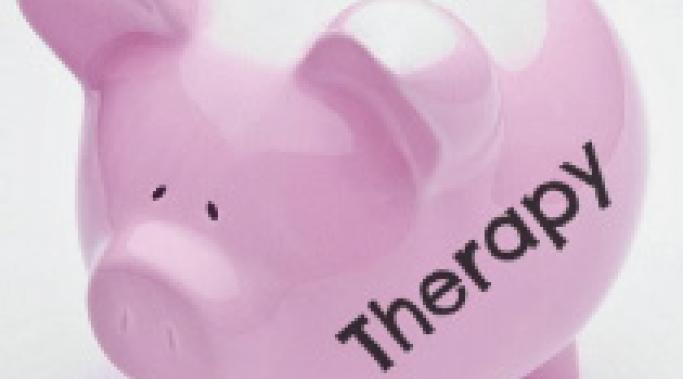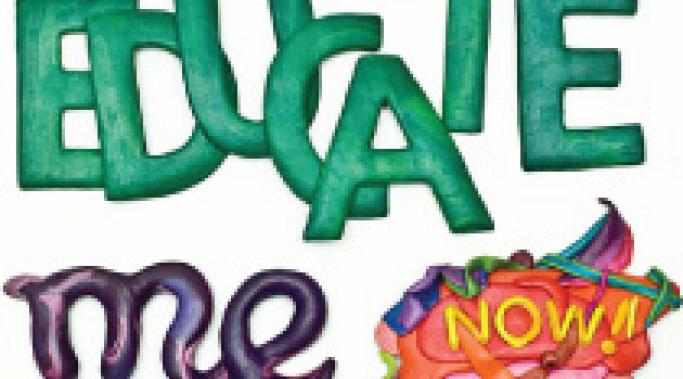I spent nine months on the borderline personality disorder (BPD) unit at Larue Carter Memorial Hospital in Indianapolis. At the time, it was the only inpatient unit specializing in schema therapy for BPD in the country. Recently I learned that this unit, which changed and probably saved my life, is now closed. It made me think about what happens to patients when psychiatric hospitals close--it rarely ends well.
More than Borderline
I've written about my abuse at the hands of the Antioch movement and my escape. It took a long time before I could attend church again, and the abuse did much to exacerbate my symptoms of borderline personality disorder (BPD). I had to find what the Bible calls "beauty for ashes." I had to find peace amidst the pain.
Recently I was talking to a volunteer from a domestic violence shelter and I asked if calls had increased since the Ray Rice video was made public. The answer was yes, because awareness was being raised. According to HealthyPlace, women with mental illness are at a greater risk of being abused. So I decided to write about signs of an abusive relationship, how domestic abuse can affect a person with borderline personality disorder (BPD), and the warning signs of an abusive relationship via the Domestic Violence Screening Test.
I am an avid video game player. Recently I discovered Half the Sky Movement: The Game. Based on the book, it educates the player about poverty issues around the world. It's not all sweetness and light--one character is sold into prostitution at age 11, another character has an abusive husband--but it educates the player and offers solutions in the form of charitable gifts. It made me think about offbeat ways people with borderline personality disorder (BPD) can educate others about the disease.
I recently read an article about a new class of mental health professionals in Kentucky--licensed pastoral counselors. Due to my negative experience with Christian counseling, I am hesitant, but cautiously optimistic. I can understand both sides of the argument, but here's why I think it's a good idea.
Shortly after I moved into the downtown Indianapolis area, I started betting on horse races at a bar (off-track betting, OTB). I realized I now had not one, but two addictions when I joked about buying a horse and naming it "Beer Money." While I'm in recovery, I still speculate about how my symptoms of borderline personality disorder (BPD) fueled my gambling addiction. Thankfully, I caught it early.
I live in a bad neighborhood, complete with an abandoned house next door. About a week ago, I saw a man with a crowbar and a bag enter the house through the previously boarded-up window. I called 911 to report a breaking and entering (B and E), and the police came out to investigate.
Or so I thought.
I walked outside, identified myself as the caller and prepared to positively identify the suspect. However, the police just looked at the forced-open window and left without saying a word. They didn't even interview me. I later learned that it's not the first time this guy has had the cops called on him--my landlord has called the police, but nothing has been done.
The whole experience has caused my symptoms of borderline personality disorder (BPD) to flare up. It has made me think about what a person with mental illness can do when they witness, or, God forbid, are victims of, a crime.
Sometimes, as in the case of Robin Williams, mental health help fails. It's a minority of the time, but it happens. So what should we do when our help doesn't help? How can we change a treatment failure into a treatment success?
It's news that leaves you morose--Robin Williams, the comedian and actor who brought us Mrs. Doubtfire and Patch Adams, is dead from an apparent suicide. The news made me reflect on my battle with borderline personality disorder (BPD) and my own thoughts of suicide. There are three lessons to learn - know when to ask for help, keep on seeking help, and always remember that suicide is often a permanent solution to a temporary problem.
I was diagnosed with severe mental illness while I was a sophomore in college. I was suicidal, which prompted an emergency psychiatric evaluation. Unfortunately, it also prompted eviction from the dorm and suspension from school. I later got the director of the counseling center to admit--on the record--that the policy was more for the benefit of other students than the suicidal student. It was not the most compassionate of policies. So how can colleges and universities help students with mental illness?









